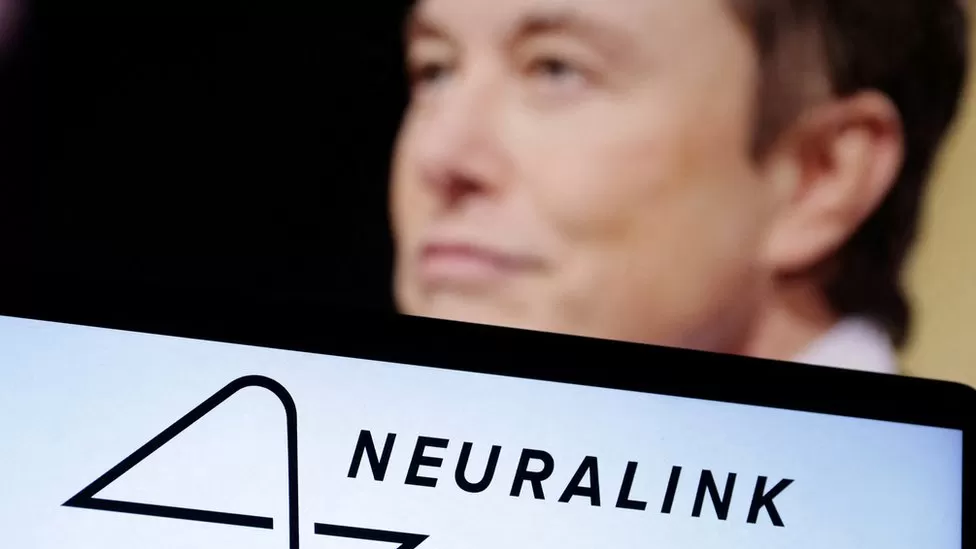Musk start-up Neuralink seeks people for brain-implant trial

Elon Musk’s brain-computer interface (BCI) start-up Neuralink has begun recruiting people for its first human trial.
In order to test its technology on people with paralysis, the company wants to connect human brains to computers.
By implanting a BCI, they will be able to control a computer cursor, or type, solely through their thoughts.
However, rival companies have implanted BCI devices in humans already.
A critical milestone for Neuralink was the FDA’s approval of its first human clinical trial in May.
According to Neuralink, FDA approval “is an important first step that will one day allow our technology to benefit many people”.
Former and current employees of the company told Reuters that they had sought approval to implant their devices in 10 people.
Unknown is the final number that was agreed upon.
During the six-year study, a robot will surgically implant 64 flexible threads, thinner than a human hair, into a part of the brain responsible for movement intention.
The experimental N1 implant – powered by a wirelessly rechargeable battery – records and transmits brain signals wirelessly to an app that decodes how a person intends to move.
People with quadriplegia due to injury or amyotrophic lateral sclerosis (ALS), which causes the nerve cells in the spinal cord and brain to die, may be eligible for the trial.
While Mr Musk’s involvement raises Neuralink’s profile, some of its competitors have been around for nearly two decades. The first BCI implanted by Utah-based Blackrock Neurotech took place in 2004.
One of Neuralink’s co-founders is behind Precision Neuroscience, which aims to help people with paralysis as well. According to the company, the implant is a very thin piece of tape that sits on the surface of the brain and can be implanted through a “cranial micro-slit”.
